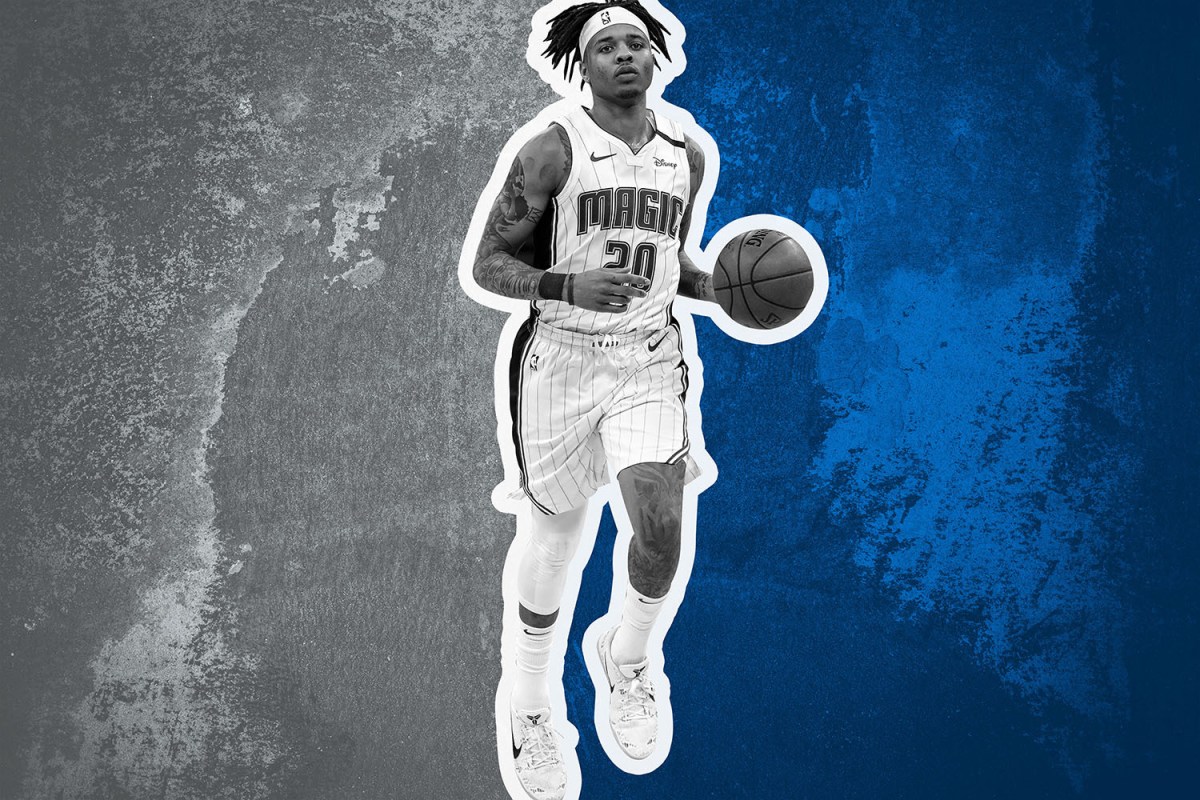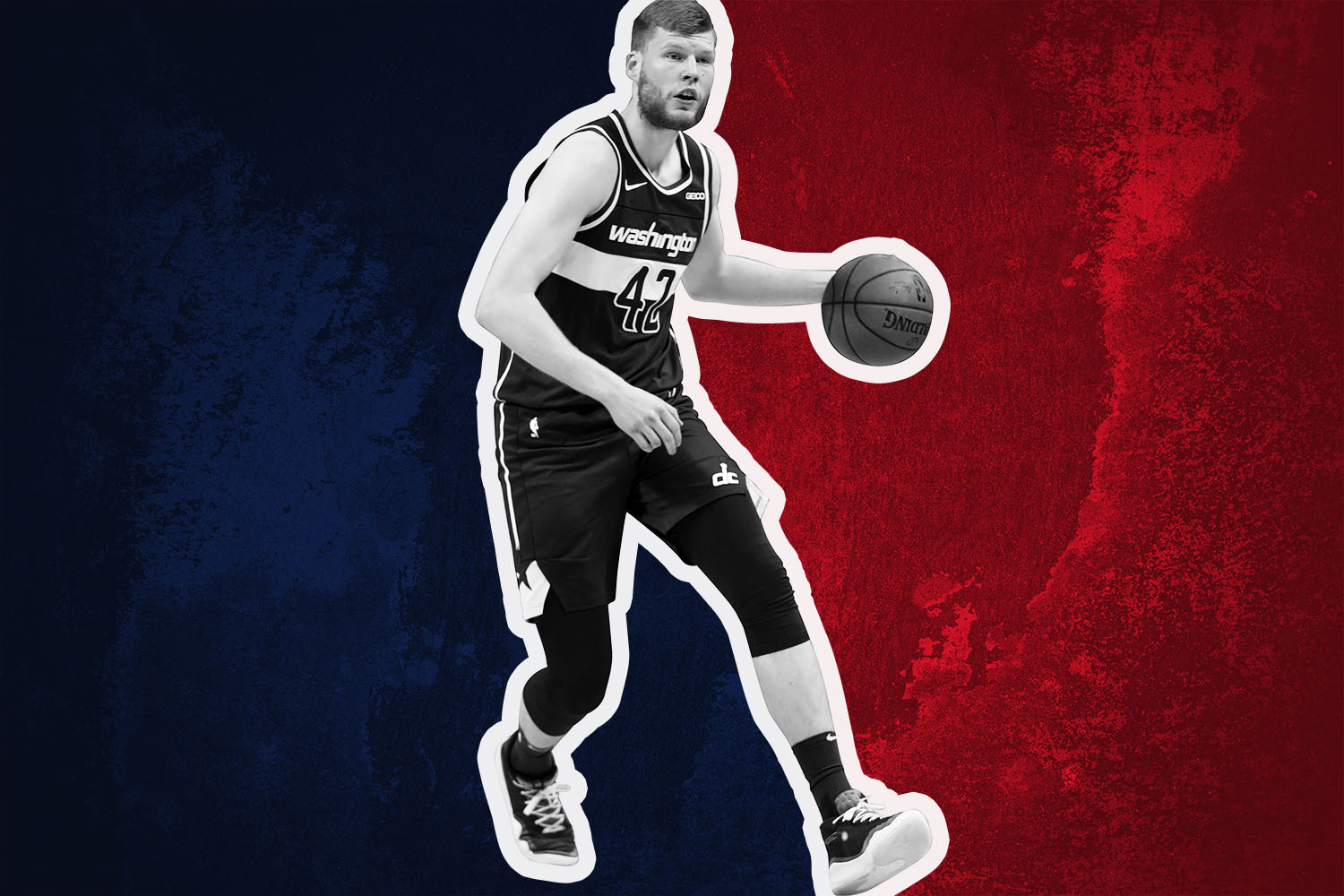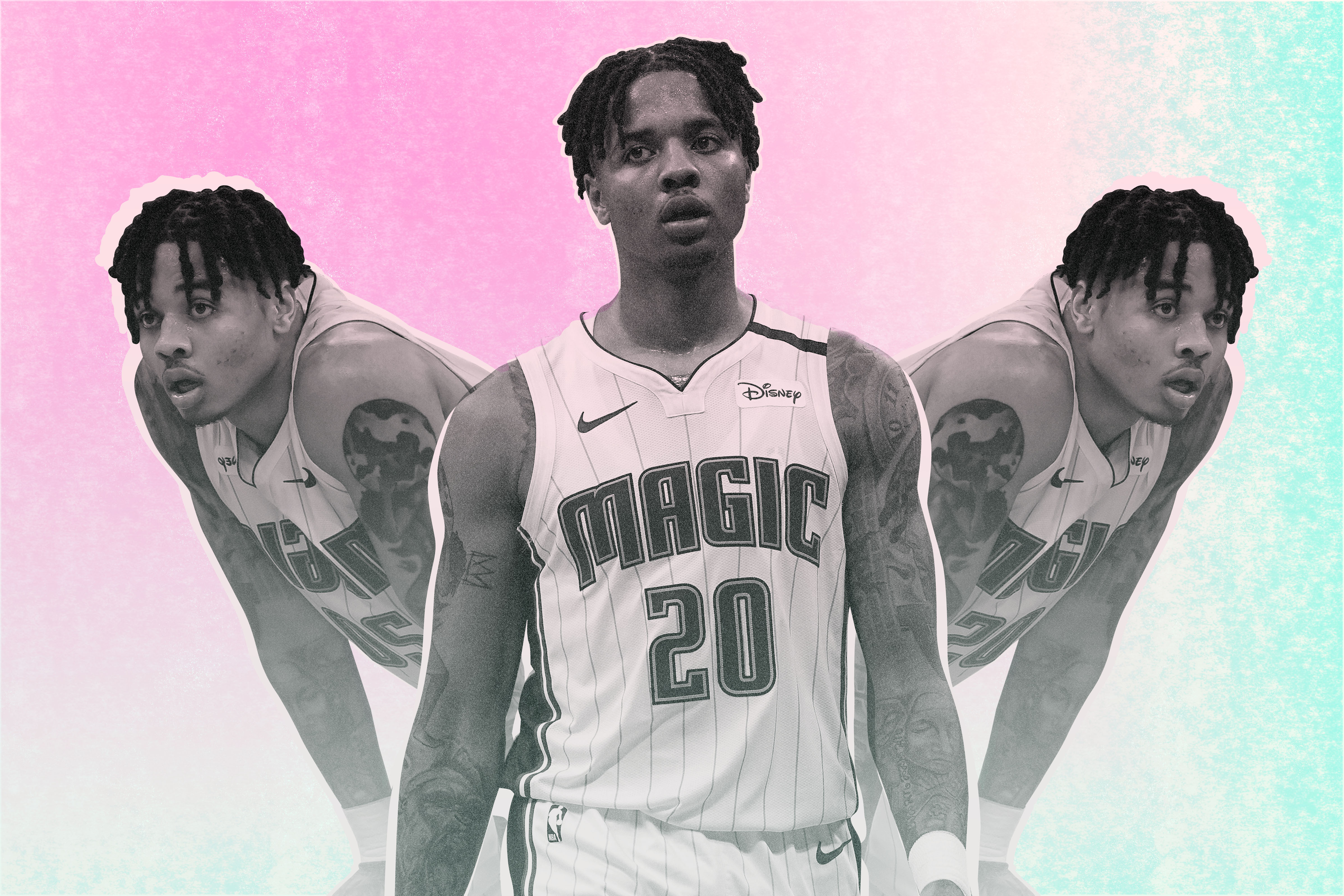Over the next three weeks, we’ll be preparing for the NBA’s long-awaited restart by attempting to answer the single most important question facing every franchise that will be present and accounted for in Orlando. This is 22 Questions.
Markelle Fultz is the starting point guard for the Orlando Magic and he’s okay. But given the context of everything Markelle Fultz has been and not been over the course of his first three years as an NBA player, okay feels like a revelation.
After being selected first by the Philadelphia 76ers in the 2017 draft, Fultz forgot how to perform one of the most basic parts of basketball: unlike Alexander Hamilton in that 10th-grade-history-project-ass musical, he threw away his shot. Every free throw became a viral moment. He leaned away from the ball and held it at arm’s length, as if it were very stinky; he pinged the ball back and forth between his hands because maybe he’d shoot better if he caught the ball by surprise; he double-clutched so violently that his personal trainer dropped him as a client out of embarrassment. To make matters worse, the 76ers, so convinced that Fultz was the final piece of the Process, traded up to select him, gifting Jayson Tatum and a future lottery pick to the Boston Celtics, their archrival. For two years in Philadelphia, Fultz was treated as some bastardized cross between a beloved rescue dog, a lame racehorse, a bratty child and a meme, until — finally, mercifully — he was shipped to Orlando last winter.
Now the floor general for the 30-35 Magic, Fultz has moved past the lunacy of his time as a 76er to produce like a normal and average basketball player. Just 22 years old, he averages 12.1 points and 5.2 assists in around 28 minutes per game, forgettably decent numbers that obscure the lingering weirdness of his game. The Magic are a totally unremarkable team that will be flayed in the playoffs, but the NBA’s restart offers the perfect opportunity for Fultz to prove that he’s more than his confusing past.
Although Fultz is certainly better than the last two years, he’s not close to being completely fixed. He’s still a bad and reluctant three-point shooter — he’s shooting 25.4% from deep and only 17.5% of his field goal attempts are from beyond the arc, giving him the fifth lowest three-point rate (the percentage of shots taken that are threes) of any guard who’s started at least half of their team’s games. To be fair, a low three-point rate is not at all damning on its own; in fact, having a high three-point rate can be the mark of a unidimensional shooting specialist. When paired with his inaccuracy, though, his meager three-point rate places a pretty defined ceiling on his scoring efficiency. More frustrating is Fultz’s aversion to contact. A big, athletic guard with impeccable body control, Fultz should be the exact kind of player who lives at the free throw line. And yet he drifts and floats away from the rim on many layups, dodging contact rather than inviting it. Despite the fact that he’s become an inoffensive free throw shooter at 72.3%, his solidly below-average free-throw rate highlights some residual scar tissue within his offensive approach. The problem isn’t just that Fultz is a bad three-point shooter, it’s that he’s allowed it to impact other parts of his game. If Fultz can’t make threes and won’t draw fouls, it’s near impossible to imagine him ever becoming a legitimately dangerous scorer.
While Fultz’s shooting remains a clear weakness, his potential is immense and obvious. It’s not an exaggeration to say that Fultz is bordering on elite as a finisher, playmaker and defender. In contrast to his butt-ugly jump shot, Fultz plays with more style than any other guard in the league. He delivers passes with sudden flicks and scoops, beating defenses with nonchalance. His dribbles have the staccato fluidity of a pop-and-locker, each one filled with a gyroscopic wiggle, the sense that he’s somehow going in every direction at once. Beyond looking really cool, this lends him an unpredictability that somewhat compensates for his bad shooting and confuses defenders just enough for him to squirm through tight spaces. Defensively, he expertly uses his big frame and 6’10 wingspan to corral ball-handlers. Even in the Magic’s conservative scheme, Fultz is a disruptive force, ranking in the league’s top quartile in steals, deflections and shot deterrence, according to Basketball Index’s proprietary advanced stats.
Most encouraging, his shooting isn’t so bad all the time. Notably, he’s regained his touch from mid-range, shooting above 40.8% from 10-16 feet and 44.8% on shots between 16 feet and the three-point line. To be sure, nobody would mistake Fultz for deadeye mid-range shooters like Chris Paul or Kawhi Leonard, but his comfort in the mid-range combined with his success at the rim shows that he perhaps has more latent shooting talent than he demonstrates on his strained spot-up threes.
As such, Fultz’s game is a palimpsest of the budding superstar he was in college and the broken bust he was in Philly: his elite ancillary skills and career-defining weakness are clear in equal measure. In this light, Fultz is often given the backhanded compliment of being a good jump shot away from making good on his hype, but that’s a reductive and unproductive conversation. Literally every single person alive would become a better basketball player if they could magically become a much better shooter. It’s like saying I’m a billion dollars away from being super rich. Instead, the more realistic approach is to discover how Fultz can thrive, sans a three-point shot, whether that’s as a bruising isolation scorer, sure-handed floor general or defensive hellion — or, in his ultimate form, an amalgam all three. He will never become the Bradon Roy/Dwyane Wade hybrid that draftniks hoped for, but he’s young enough and talented enough that he’s guaranteed to be a productive player of some sorts. The kiln that is the NBA playoffs will be the first real step toward seeing what shape he’ll assume.
Whether you’re looking to get into shape, or just get out of a funk, The Charge has got you covered. Sign up for our new wellness newsletter today.






















